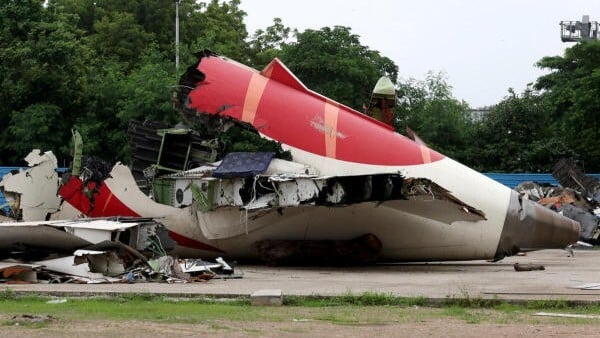Controversy Erupts as Cockpit Recordings Surface from Fatal Flight

When the preliminary report on the tragic crash of Air India Flight 171 was released, which resulted in the loss of 260 lives in June, many anticipated it would provide closure. However, the 15-page document has instead intensified speculation surrounding the incident. A critical detail has emerged: shortly after takeoff, both fuel-control switches on the Boeing 787 were inexplicably moved to “cut-off,” leading to a complete power loss. This unusual action, typically reserved for landing, has left investigators and the public searching for answers.
Details of the Incident
The crash occurred less than a minute after takeoff from Ahmedabad, India. The cockpit voice recording revealed a perplexing exchange between the pilots. One pilot questioned the other about the fuel cut-off, to which the response was a denial of any such action. At the time, the co-pilot was at the controls while the captain monitored the flight. The switches were eventually returned to their normal position, allowing for an automatic engine relight. However, one engine was still regaining thrust when the aircraft crashed into a residential area. This sequence of events has led to various theories about what transpired in the cockpit.
Reports from major news outlets, including The Wall Street Journal and Reuters, suggest that attention is shifting towards the senior pilot. Italian newspaper Corriere della Sera has also indicated that the first officer repeatedly questioned the captain about the engine shutdown. Both pilots, Captain Sumeet Sabharwal and Co-pilot Clive Kunder, had extensive flight experience, totaling over 19,000 hours, and had passed all pre-flight health checks prior to the incident.
Reactions from Investigators and Pilots
The wave of speculation following the preliminary report has unsettled investigators and provoked anger among Indian pilots. The Aircraft Accident Investigation Bureau (AAIB) of India criticized certain media outlets for drawing conclusions based on selective reporting, labeling such actions as irresponsible while the investigation is still ongoing. Jennifer Homendy, chairwoman of the U.S. National Transportation Safety Board (NTSB), echoed these sentiments, stating that the media’s conclusions were premature and that thorough investigations take time.
The Indian Commercial Pilots’ Association condemned the rush to blame the flight crew, calling it reckless and insensitive. They urged the public to exercise restraint until the final report is released. Sam Thomas, head of the Airline Pilots’ Association of India, emphasized the need for a comprehensive review of the aircraft’s maintenance history and cockpit voice recorder data to ensure transparency in the investigation.
Speculation and Theories
The preliminary report has left many questions unanswered, particularly regarding the cockpit conversation captured in the recording. A Canada-based air accident investigator noted that the brief exchange presents multiple possibilities. If one pilot inadvertently operated the switches, their denial could be understandable. Conversely, if the action was deliberate, it raises concerns about intent and accountability.
While investigators believe there is strong evidence that the fuel switches were manually turned off, they stress the importance of keeping an open mind. Some pilots have suggested that a malfunction in the aircraft’s Full Authority Digital Engine Control (FADEC) system could have triggered an automatic shutdown. However, the timing of the pilot’s question about the fuel cut-off complicates this theory.
The preliminary report’s selective disclosure of information has also sparked debate. Questions arise about whether the investigation team is confident in identifying the speakers or if they require more time to analyze the data before drawing conclusions. Former NTSB managing director Peter Goelz has called for the release of a full transcript to clarify the situation.
Looking Ahead
As the investigation continues, experts urge caution in forming conclusions. Shawn Pruchnicki, a former airline accident investigator, warned against assuming that the fuel switches being turned off indicates intentional action. He highlighted the need for careful analysis of all available data before jumping to conclusions.
Alternative theories, including the possibility of an electrical fire, have also been discussed. However, the preliminary report clearly states that the engines shut down due to the fuel switches being moved to cut-off. AAIB chief GVG Yugandhar emphasized that the preliminary report aims to provide information about what happened, but definitive conclusions will have to wait for the final report, which will address root causes and recommendations.
Observer Voice is the one stop site for National, International news, Sports, Editor’s Choice, Art/culture contents, Quotes and much more. We also cover historical contents. Historical contents includes World History, Indian History, and what happened today. The website also covers Entertainment across the India and World.

